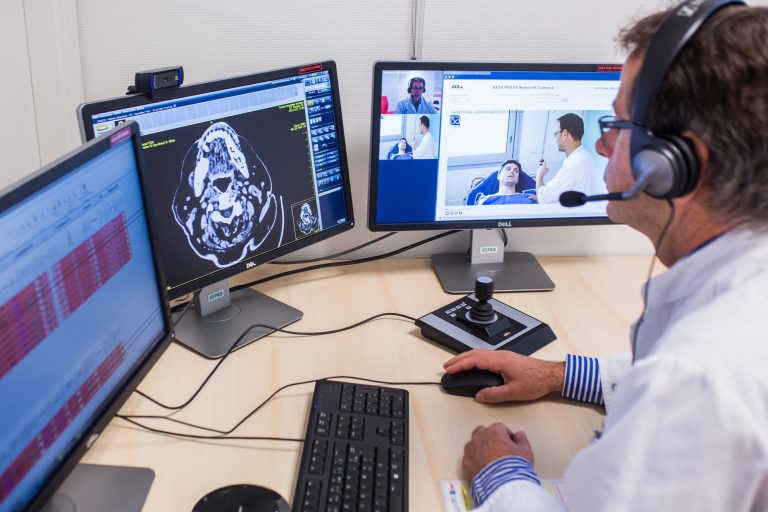When will your employees lose their motivation to work remotely?
Can we assume that remote workers are more motivated? On the one hand, introducing remote work can have a positive impact on the team’s motivation – remote workers are often less stressed by work and feel more autonomous. On the other hand, we have to realize that in such a mode of work, completely different factors than in stationary work may have an impact on reducing internal motivation to work. I will try to identify some of these factors in this article.
Remote work and motivation
We hear voices everywhere about the advantages of remote work. Especially now, when many companies have had to introduce forced remote work in connection with the coronavirus pandemic, we hear that during this time the commitment and effectiveness of teams have increased. However, is it really due to the transition to remote work? We cannot be sure of that at this point.
In organizational psychology, the so-called Hawthorne effect . Its name comes from a phenomenon observed in 1932 at the Hawthorne Works factory in the USA, where Australian psychologist Elton Mayo conducted research on the influence of the working environment on employee productivity. He noticed that when the light intensity in the factory was changed, the efficiency of the employees increased, only to return to the baseline level over time. When the light intensity was changed back to what it was at the beginning of the experiment, the efficiency increased again. Scientists, interpreting this fact, suggest that it is not a specific change that increases efficiency, but the very fact of introducing any change aimed at helping employees. It must be remembered that Elton Mayo was keenly interested in the needs of employees and their comfort of work. Thanks to this, his strategy had the intended effect on the employees – the feeling that their needs are important.
How does this relate to working remotely? It may turn out that the currently visible increase in motivation and efficiency does not result directly from the possibility of working from home, but from a change that has been desired by many for a long time. However, if you believe in psychological research, if we do not introduce changes and improvements on a regular basis, it is only a matter of time when the enthusiasm of employees will drop, and with it, motivation and efficiency.
Therefore, now let’s think about what may affect the lack of motivation to work remotely in teams and let’s start to prevent it.
Incompetent time management
The problem of separating work from private life is one of the biggest problems of remote workers. Unquestionable advantages, such as working straight from your own salon and deciding on your own working hours turn out to be a trap when it is time to “get out” of work and take a rest. In such conditions, there is a great temptation to work overtime. Especially when the employee feels that they have not done their best during the day or has a project to complete. It may seem that this is a favorable situation from the employer’s perspective – after all, the employee spends more time on work, achieves his goals and is apparently more effective. However, this is a short-sighted approach. One of the most important factors influencing motivation and commitment is the work-life balance. If this balance is disturbed, we must take into account that sooner or later the following consequences will appear: greater sense of stress at work, occupational burnout or increased absenteeism. That is why it is so important to prepare your employees to work from home, provide them with knowledge and resources that will enable them to plan their time in such a way that there is still space for rest and personal matters. How to do it? If we do not have the ability to provide appropriate training to all our employees, we should make sure that all our managers are equipped with such knowledge. They should be responsible for transferring good practices to their teams and emphasizing the importance of work-life balance.
The wrong people in the wrong positions
In remote teams it is especially important that each person is in the right position, according to their predispositions. All employees work alone most of the time and manage their own tasks. Therefore, in remote work there is no room for half measures and matching the employee to the position at 60%. Some time after implementing remote work, it may turn out that not everyone fulfills roles that are consistent with their strengths and competences. However, if we don’t start thinking about it and check it early enough, we may find it too late – when our employees are already demotivated and we start to feel the first losses for the business. After all, teams and managers do not see each other on a daily basis, and thus – unconsciously committed mistakes may appear much later than it would be under standard conditions. To avoid such situations, it is worth doing a thorough talent review in the organization, getting to know the strengths of your employees and delegating tasks that will be well suited to them. This may sometimes require the reorganization of entire teams, but at the same time it ensures that we will make better use of our employees’ potential. Not only will they be happier, be able to perform the tasks that are tailored for them, but it will also allow us to better identify possible competency gaps in the team and plan training or additional recruitment.
Leaving to yourself
When the entire company is working remotely and everything is going according to plan, projects are moving forward and employees are not having any problems, we can lose our vigilance. As a rule, when working remotely, everyone must show a lot of independence, because supervision over their work is limited. Greater autonomy and less emphasis on control favors commitment to work and efficiency, but here too we can fall into the trap. If our employee copes very well with all tasks, managers may have a tendency to leave him alone and limit himself to short, more or less regular update meetings. In such a case, however, they can easily miss the moment when the tasks that the employee performs on a daily basis will cease to be satisfying and become an unbearable routine. Let’s not forget that in order to keep employees’ motivation at a high level, regular and accurate feedback is necessary, which is the starting point for development and entrusting more and more responsible tasks. Therefore, the role of a manager should be to control the employee’s development potential on an ongoing basis and to interweave easier tasks with those that pose a challenge for the employee.
Poor communication
Let’s recall what communication looks like in a stationary office? It is usually more spontaneous and all news travels at an express pace. This cannot be said about communication in remote or hybrid teams. In such teams, it is easy to lead to a situation where, for example, individual employees do not know completely what other departments are currently doing and in which direction the company is heading. If we do not take care of this, we must be ready that our employees will not identify with our company and will become less and less associated with our company over time, and as a result they will not be involved in the life of the company.
Failure to maintain consistent communication across the entire company can also lead to fragmentation and widening gaps between teams. It may happen that one team is much better informed than the rest (e.g. thanks to a more communicative manager). In such a situation, other teams may feel more excluded, which will certainly not have a positive effect on their morale and lack of motivation to work remotely .
Therefore, communication in remote work is an extremely important aspect. When thinking about communication, we have to plan it on many levels – on the general corporate, team, individual and manager-employee level . Only in this way can we maximally map the office reality and make our employees more connected with the company. Let us also make sure that it is not a one-way communication and let our employees speak. We can do this, for example, by introducing regular, individual feedback meetings with the HR department, where everyone has the opportunity to comment on various aspects of the company’s operation. After introducing such a solution in Talent Place, we noticed a significant increase in employee engagement.

Lack of social contacts
Working 8 hours a day in our own apartment in front of a computer can start to feel lonely. For many years it was work that was the main source of social contact . We spent time in offices with people, and after work we would go for a beer with colleagues. There is no such thing in remote work, but it does not mean that the need for friendly relationships with other people disappears. Man is a social being, and although people differ in their expectations as to the amount and intensity of contact with others, most of us feel bad without any contact.
And when working remotely, it is often more difficult to look after these contacts. In many companies there is no space for loose team interaction. If we focus only on business relationships, we must be aware that the team will no longer know and like each other, and they may have lack of motivation to work remotely . Deficiency of friendships at work reduces trust in colleagues and solidarity in teams. If employees are not related to their team in any way, they will not have the motivation to help their colleague or colleague in a difficult task and give their best.
The lack of a sense of community will not be solved, unfortunately, by a large, organized integration every few months. We must make sure that we create a space for casual conversations and getting to know colleagues during everyday work, so that no one feels lonely in the company. We can take care of such space on our internal communicator – it is worth creating channels that are not related to work. It’s also a good idea to organize online integrations where you can talk about any topic.
New employees and loss of motivation to work remotely
If the company grows, it is certain that sooner or later new employees will join it. And here is the challenge – how to implement such an employee, if he cannot appear in the office, will not meet the entire team and will not sit next to the manager who will introduce him to new duties? The onboarding process is something that must be perfectly planned in the case of a remote organization. Therefore, we have to think about aspects that we do not think about during onboarding, e.g. how will other employees find out about the new person? Under standard conditions, they will just see the new employee in the office. In the new reality, we must remember to send the appropriate message. Contrary to appearances, the biggest challenge in implementing a new employee is not transferring knowledge to him, because transferring knowledge online, thanks to technological advances, does not differ much from transferring knowledge in the stationary. Our experience shows that the biggest challenge is to build a relationship with a new person and it is this aspect that we need to take special care of. At Talent Place, we managed to almost completely automate the knowledge element of onboarding thanks to the Skillveo platform. Thanks to this, we have regained the time that we devote to better getting to know and building a relationship with a new employee by presenting him on the company’s messenger, organizing a meeting and individual care in the first weeks of work.
Does this happen in your company?
The answer is probably yes. If today you hear about these problems for the first time and your company has not yet implemented any actions that can prevent them, you can expect that the decrease in motivation or commitment of your employees is only a matter of time. The best thing you can do now is analyzed your way of working from the moment you deploy remote work, identify all potential problems and learn how to prevent them or minimize their effects.
Summary
Remote work can often seem like an ideal solution, responding to the challenges of our times. Undoubtedly, such a mode of work has many advantages and a large proportion of employees now expect such a possibility. However, the new reality of work also means completely new challenges that we have to face. And the sooner we deal with them, the sooner we can talk about the full implementation of remote work in our organization.







